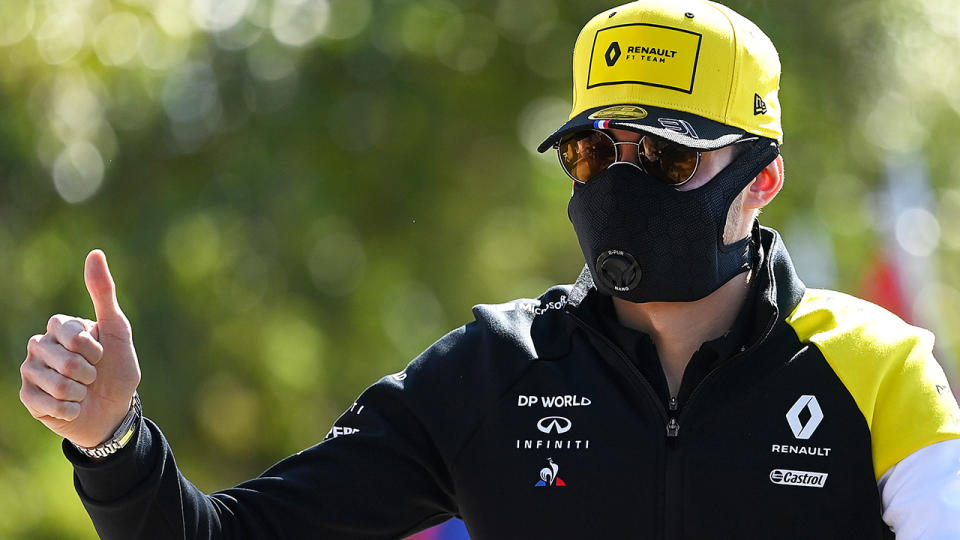'Won't cancel a race': Formula 1 makes stunning virus call

Formula One will not cancel a race even if a driver tests positive for COVID-19, chief executive Chase Carey said on Tuesday.
The American was speaking after the sport published an eight-race initial calendar with the season starting in Austria on July 5.
HITTING OUT: F1 champ slams peers over George Floyd silence
'SWERVED INTENTIONALLY': Supercars driver hit by van
The original March 15 opener in Australia was cancelled after a McLaren team member returned a positive test for the new coronavirus before the weekend had started.
"An individual having been found with a positive infection will not lead to a cancellation of a race," Carey said in an interview on the official www.formula1.com website.
"We encourage teams to have procedures in place so if an individual has to be put in quarantine, we have the ability to quarantine them at a hotel and to replace that individual," he added.
"A team not being able to race wouldn't cancel the race ... we will have a procedure in place that finding infection will not lead to a cancellation. If a driver has an infection, (the teams have) reserve drivers available."
Formula One plans to race without spectators, at least initially, and teams will fly in on charters and be isolated from the local population.
Formula One details plan to restart season
Carey pointed to "a rigorous set of guidelines" of some 80-90 pages detailing the processes for travel, hotels, meals, track behaviour and testing.
Teams will operate in 'bubbles' with social distancing in non-critical areas such as the paddock.
Formula One expects some 1,200 essential personnel with the 10 teams limited to a maximum 80 people each compared to the more usual 130.
BREAKING: The opening 8 races of a revised 2020 calendar are now confirmed
All 8 are currently set to be closed events, operating under the strongest safety procedures
Further races will be announced in the coming weeks pic.twitter.com/vQioKOAkQo— Formula 1 (@F1) June 2, 2020
Carey said he hoped to finalise the rest of the calendar by the end of June and recognised there were some races currently included which might not happen, but the sport had other options.
The F1 boss defended the decision to go racing, saying governments in the countries concerned were supportive.
"Much of the world is moving forward and I think it is important to realise that the shutdown does have both health, societal and economic consequences which are real long term," he said.

